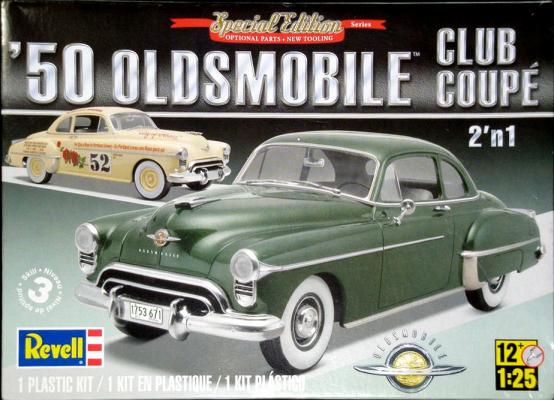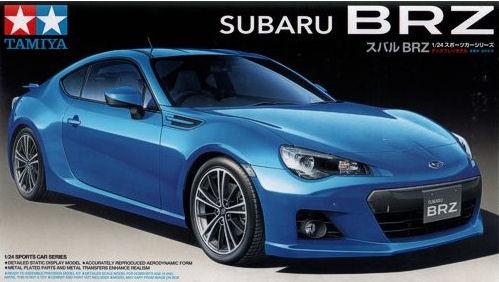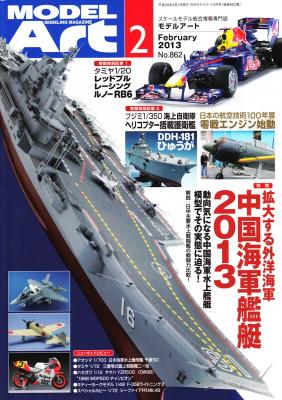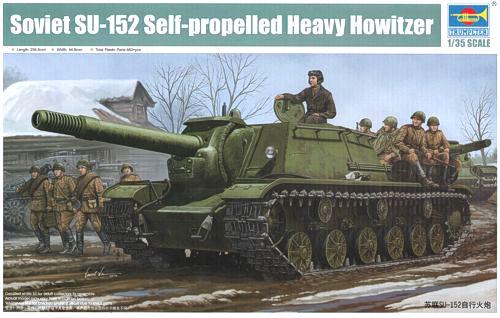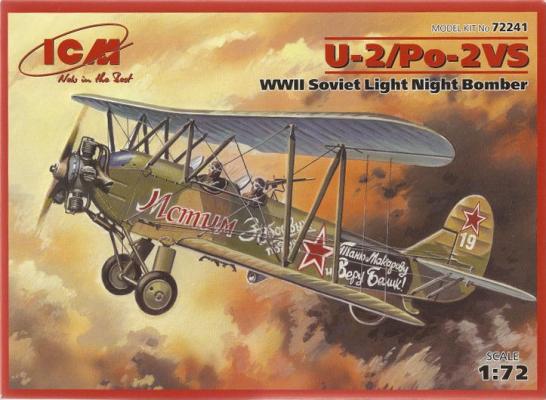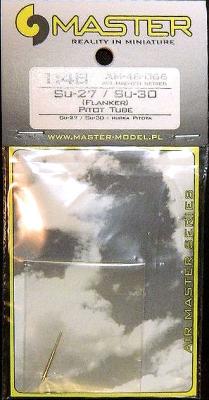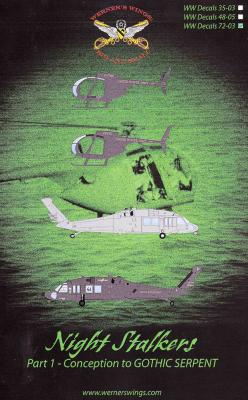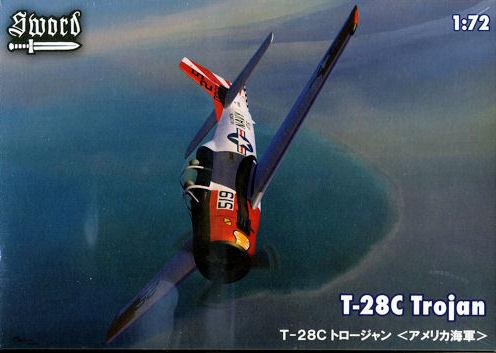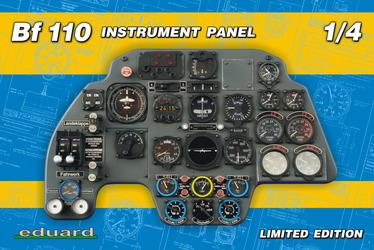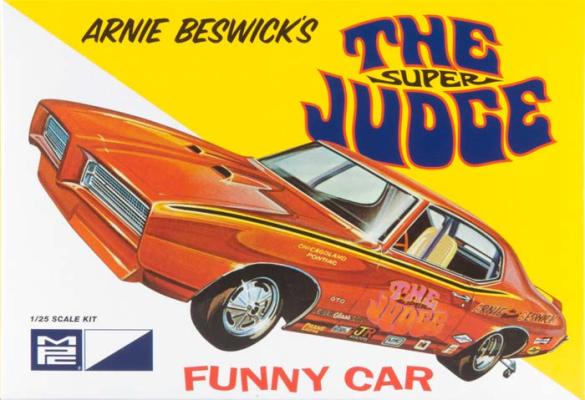Rockets Away! Revell’s new kit of what was essentially the first factory muscle car is a welcome nod to us “longer-lived” modeler-folks who can recall the marriage of GM’s first OHV V-8 and Oldsmobile’s clean styling as being either our first cars or someone in our family’s. The phrase “Not your Father’s Oldsmobile” comes to mind and no…this one wasn’t…exactly…but my Dad did have a ’51 Eighty-Eight which – even as a ten-year old – I recognized would go like the proverbial scalded ape.
What's New
1/24th scale, molded in “WRX” mica blue, black, clear and chrome; includes window masking templates, photo etched parts on an adhesive backing, and metal hood brace. The kit makes one version.
History and Research
The Subaru BRZ (B=boxer enginer, R=rear wheel drive, Z=last letter in the alphabet) is a result of a joint collaboration between Toyota and Subaru. It was designed as a world car and is known by the names Subaru BRZ, Toyota GT86, and the Scion FR-S. They are all powered by a flat “boxer”-style 4-cylinder engines in all models and is engineered by Subaru. Most of the rest of the development of the car was the work of Toyota.
Model Art Modeling Magazine is a Japanese publication that is released monthly. The text is mainly in Japanese with some English subtitles throughout. One selling point about these magazines is the high quality of the photographs and the models that are used.
The Stalingrad counteroffensive (Operation Uranus) showed the Red Army's urgent need for mobile heavy guns. The firepower of Soviet tanks, both motorized and with infantry units, was not sufficient to deal with German pillboxes and fortified buildings. In November, 1942, the development of a heavy self-propelled gun armed with 152.4mm ML-20 gun-howitzer was begun as project name KV-14, and the first prototype, Object 236, was completed in 25 days. Using the KV-1S tank chassis, mass production of the SU-152 started in mid-February, 1943, and about 700 were produced until superseded by the ISU-152 in December, 1943. During combat, it was found that the SU-152 was a great anti-tank gun that could take out a Tiger or Elefant tank destroyer with its 107 pound HEAT projectile. During the Battle of Kursk, the lack of roof vents led to crews passing out, so a later production model added vents and a hull machine gun.
History
The Polikarpov U-2 biplane was designed and built during 1928 as a primary trainer for the fledgling Soviet Air Force, and it seemed to possess all of the characteristics desired by that service, including rugged all-wood construction, a low-powered but reliable power plant, and excellent flying characteristics. It was produced in massive numbers, approximately 40,000 of them eventually being manufactured in the Soviet Union and foreign countries. The type was adaptable to many uses, including training, air ambulance, night bombing, crop dusting, and a few were even used as floatplanes. During the war, the plane was re-designated Po-2 in honor of the designer, Nikolai Nikolaevich Polikarpov. A few were even used by the North Koreans during the Korean War for night harassment, as, having all-wood construction, they had a very low radar profile. There are still a few flying today, especially in Europe.
- Sukhoi Su-27, AM-48-066, $8.50
- Harrier GR.3, AM-48-069, $5.50
- Sea Harrier FRS.1, AM-48-070, $6.50
Iwona and Piotr at Master Model in Poland are a gifted team. Here’s to you and your efforts; we FINALLY have a source for detailed, strong, accurate pitot tubes (and other things like gun barrels) with exquisite detail! Thank you for providing IPMS USA with these review samples, which were passed to me. We appreciate and support you!
New from Floyd Werner and Werner’s Wings are decals and history for the Night Stalkers, the 160th Special Operation Aviation Regiment (SOAR). This set of decals covers the history of the group from its conception in 1981 through Operation Gothic Serpent in 1993.
The aircraft covered here are H-60's and H-6’s in 1/72 scale. The decals are also offered in 1/35th and 1/48th scales. The decals cover eight markings for the H-6 and 9 markings for the H-60. Each scheme has a specific color guide and also notations about specifics of that particular helicopter. There are notes about antennae locations, markings, and history of all airframes.
The North American T-28 was used by both the Air Force and Navy and was designed as a replacement for the old T-6/SNJ. It saw use in the American military from the 1950's until the mid 80's. In the end there were 4 variants, the A, B, C, and the counter-insurgency D models. Several other variants, such as the Fennec, were used in foreign service.
The T-28C, the subject of this kit, came out in 1955 and was the same as the B model except for the tail hook installed for carrier training and a slightly shorter prop. The T-28C had a Wright R-1820 engine and a three-bladed prop.
Should you be looking for a little something different to build, I would like to point you in the direction of this one-quarter scale instrument panel that is being offered as a Limited Edition release by the folks at Eduard. The kit assembles with relative ease, and is a good representation of the instrument panel used in the Messerschmitt Bf-110C variant, although the variant is only mentioned once on the side of the box. The needles used in the various gauges are the only tricky items to handle during construction, so this would be a good item for modelers fourteen and up, as the box recommends.
To honor funny car racers of the ’60s and ’70s, Round 2 LLC announced last year that it will be releasing a new drag racing memorabilia line called "Legends of the Quarter Mile." The first model kit released was Arnie "The Farmer" Beswick's 1969 GTO funny car known as the "Super Judge." Hailing from Morrison, Illinois, Beswick is a legend in his own time. He is the most well-known Pontiac drag racer in the world. For over 50 years, his successes have made him a fan favorite. Keep in mind this nostalgia kit was originally issued in 1969 by MPC, and has been reissued several times since, this time in a very cool original box art. As it’s an older kit, expect to spend considerable time cleaning up the parts. Round 2 has also added "MH Racemaster" printed slicks and very nice Beswick decals. The assembly breaks down into several sub assemblies:

